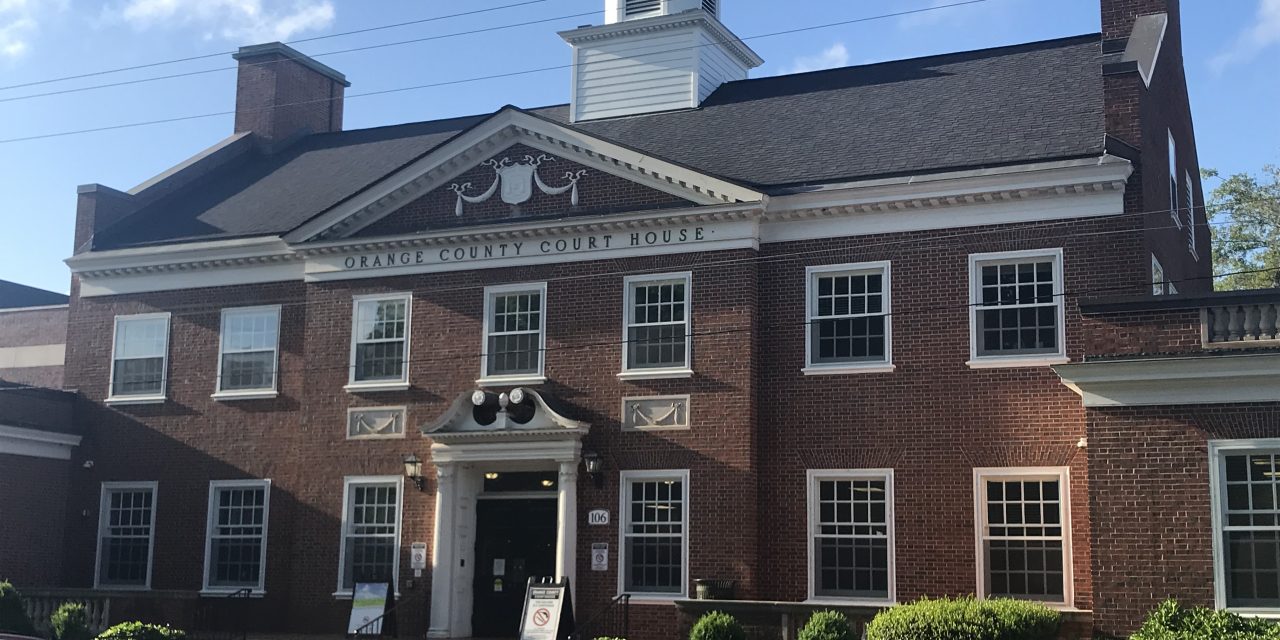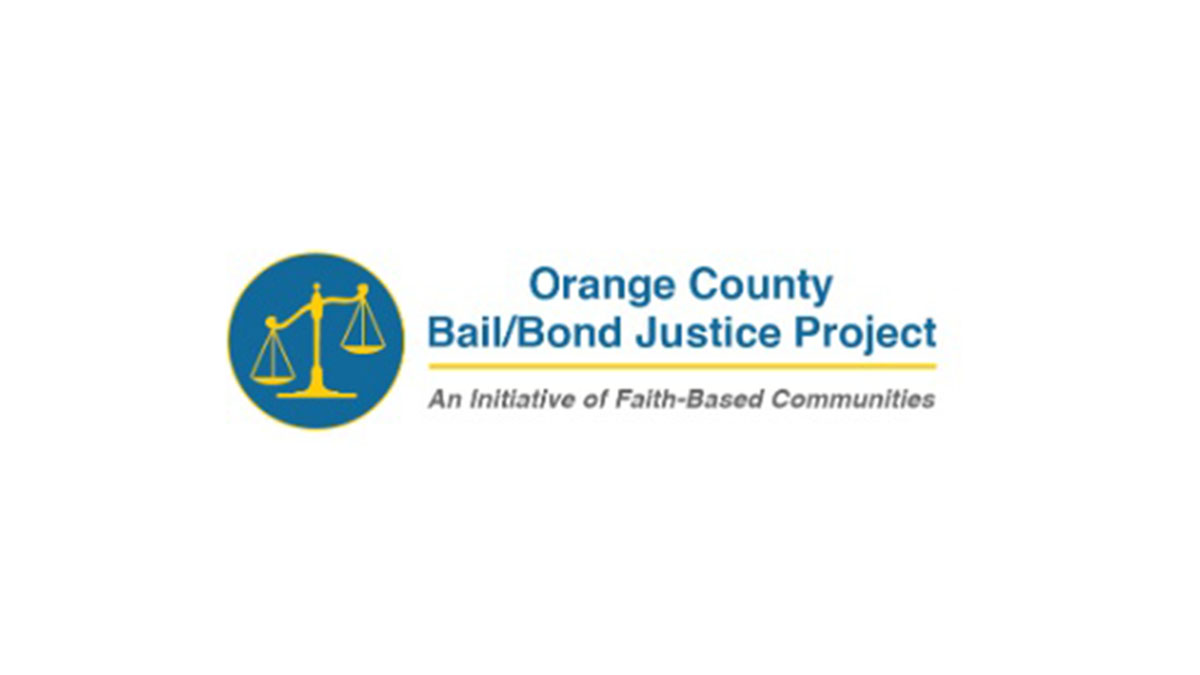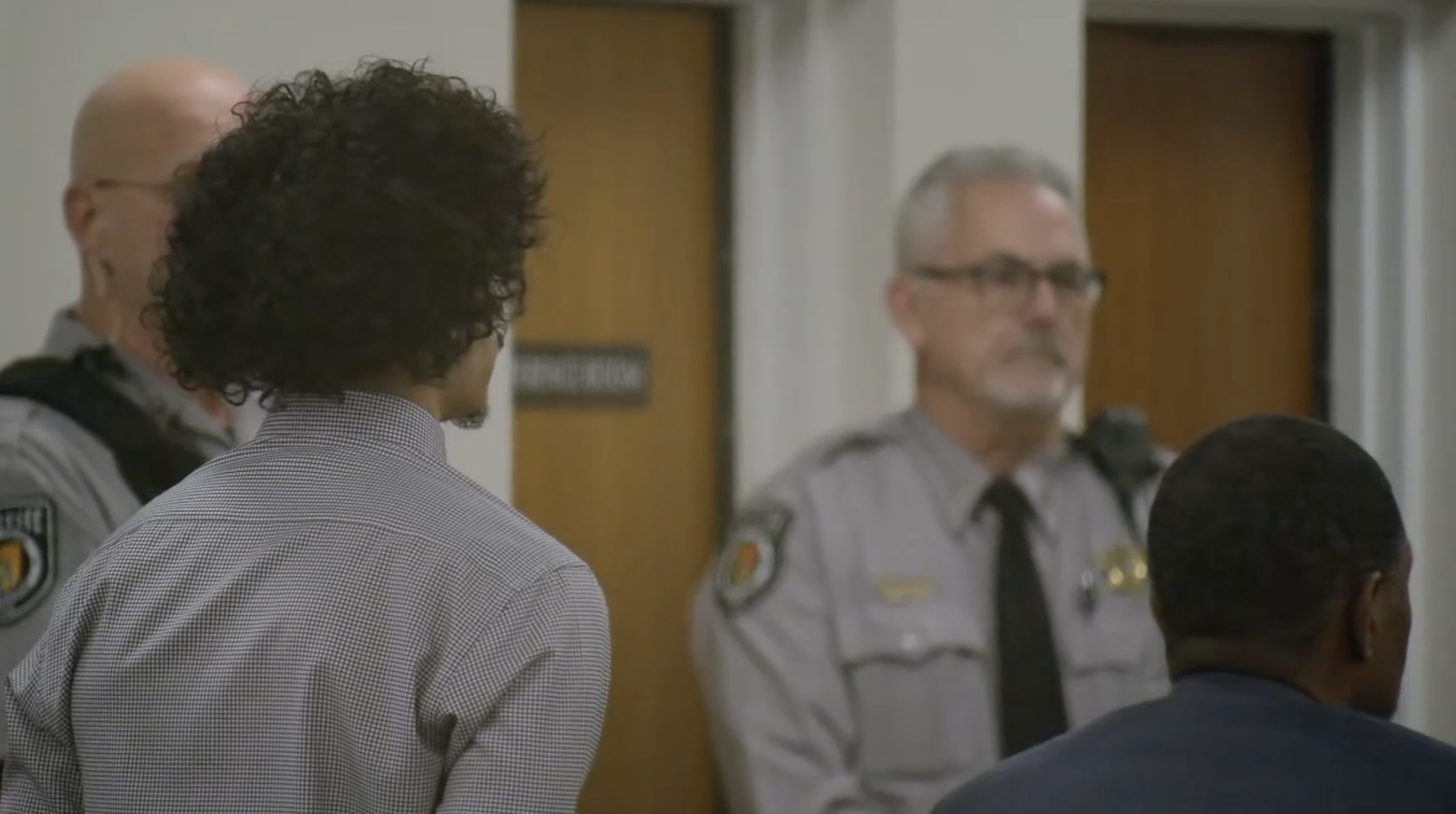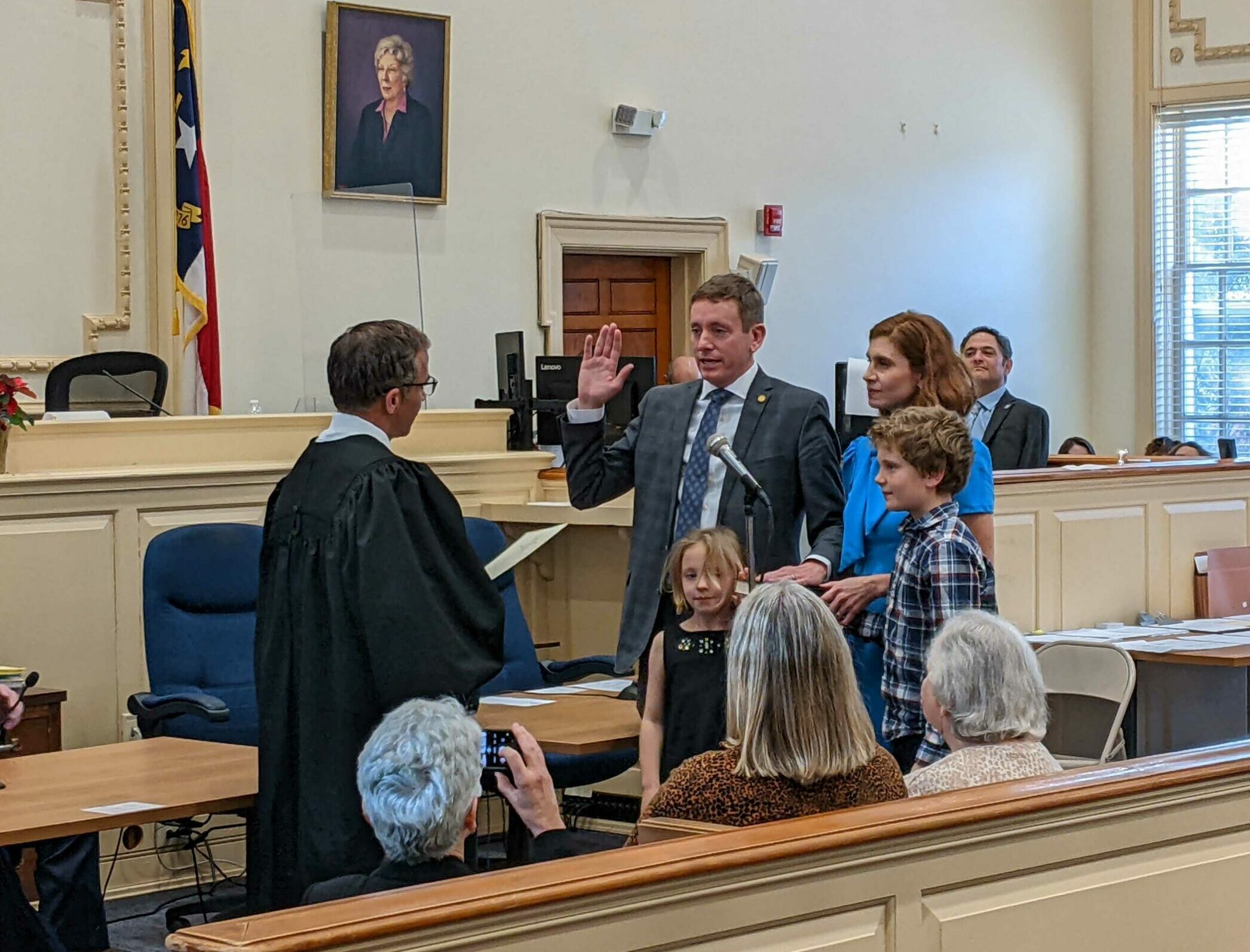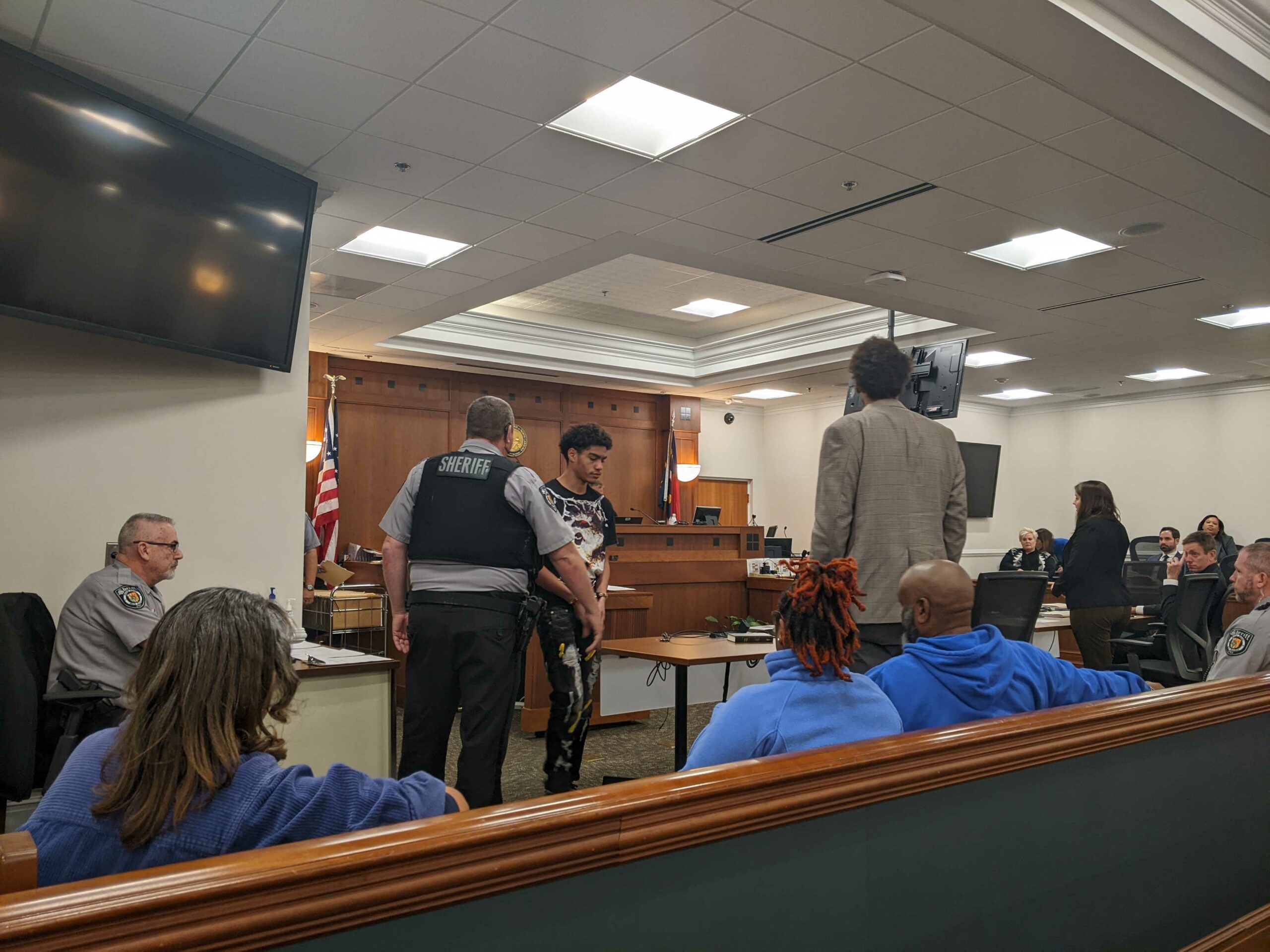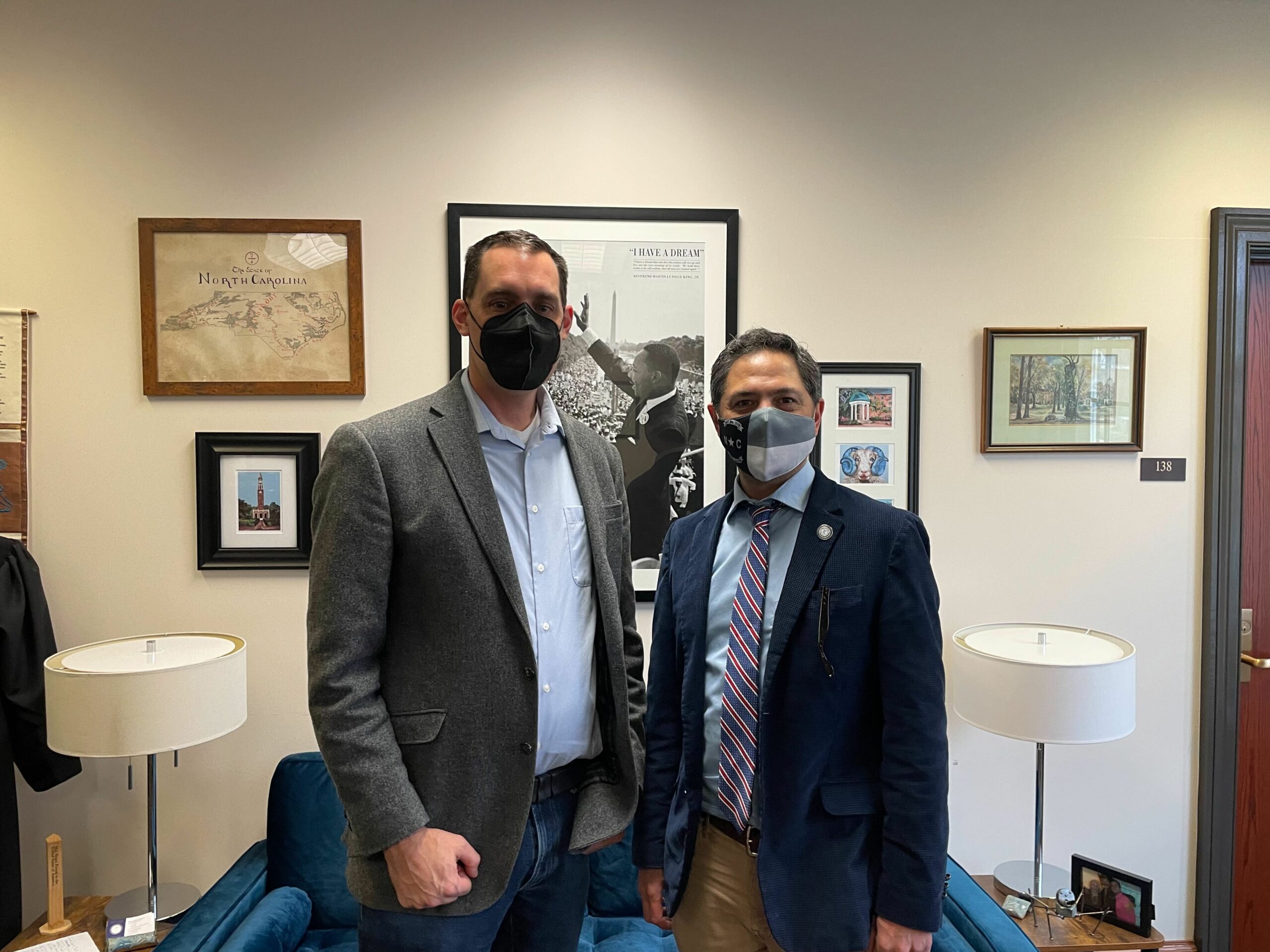The Orange County Bail Bond Justice Project is a partnership of nine churches, along with organizations like the NAACP, that strives to help people navigate the justice system.
This ‘initiative of faith based communities’ has the goal of changing unjust bail practices and providing assistance to people who cannot afford to pay their bail.
Ever since it was founded last January, the Bail Bond Justice Project has been compiling data on how Orange County issues bail amounts. Kimberly Brewer, the chair of the Bail Bond Justice Project board, said the first thing they needed to do was educate themselves.
“We’ve been in court every day almost since March or last year and recording how bail is being set,” Brewer said. “That’s what we’re reporting in this report – what we saw, what we heard and what that means for people in our community.”
Brewer says the way bail is set directly impacts people not only while they are in the system, but also for potentially months and years to come.
Jeff Hall is another board member of the Orange County Bail Bond Justice Project. As someone who has personally been through the system, he says it’s ‘impactful from the very first moment.’
“Research shows us that within the first 48 to 72 hours after someone is arrested is when the most pernicious effects occur,” Hall said. “That’s when you lose jobs, that’s when you lose transportation, that’s when you have the possibility of your kids being taken away from you – and all of that happens when you have to stay in jail – and you have to stay in jail because bail is set”
After nearly a year of overseeing magistrates and judges in Orange County, the Orange County Bail Bond Justice team recently released a report with their findings. Hall says the main finding is that there are two different justice systems in Orange County – one if you have money and one if you don’t.
“If you have money you can pay the bail and walk out the door,” Hall said. “If you don’t have money then you start getting caught up in the system and you essentially start getting punished from the moment of your arrest.”
Brewer says that while Orange County is predominantly a wealthy community, 82 percent of the people they see in court are poor. This is concerning as most of the people in the system are getting a secured bond, which means they have to pay upfront in order to get out of jail.
North Carolina state law demands a person’s ability to pay should be considered when setting a bail amount, but Brewer says that usually isn’t the case.
“In very few cases do we hear the judge ask about or inquire about ability to pay,” Brewer said.
The report also indicated there is a big disparity in court dealings depending on the race of the defendant. It shows while only 11 percent of people in Orange County identify as black, that percentage of the community made up 47 percent of the cases observed over the year.
Outside of the racial disparities, the report did identify some positives in the way Orange County court operates. Brewer says the court system is good about having public defenders in court to support the defendant during their first appearance hearings. Also, most defendants are typically able to see a judge within 24 hours. She says these standards could eventually make a change for the rest of North Carolina.
“The reform efforts that are happening at the local level, that’s really driving what happens at the state level,” Brewer said.
At the end of the report, there are 14 recommendations for reform. One of the most prevalent involves judges sharing their decision making process with the defendant when it comes to issuing their bail amount.
“As a judge, if you’re looking at the financial ability to pay then let’s tell the defendant ‘Hey, I see right here that you have this ability to pay or you don’t have this ability to pay and that’s affecting this decision,’” Hall said. “So part of it is about empowering defendants to have more information about what’s going on.”
To learn more about the Orange County Bail Bond Justice Project, visit their website.

